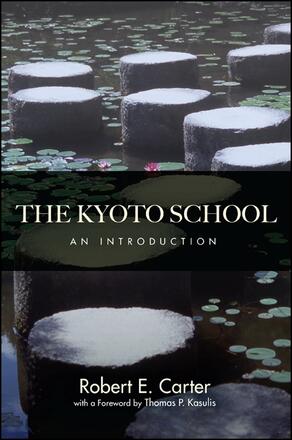
The Kyoto School
An Introduction
Alternative formats available from:
An accessible discussion of the thought of key figures of the Kyoto School of Japanese philosophy.
Description
This book provides a much-needed introduction to the Kyoto School of Japanese philosophy. Robert E. Carter focuses on four influential Japanese philosophers: the three most important members of the Kyoto School (Nishida Kitarō, Tanabe Hajime, and Nishitani Keiji), and a fourth (Watsuji Tetsurō), who was, at most, an associate member of the school. Each of these thinkers wrestled systematically with the Eastern idea of "nothingness," albeit from very different perspectives.
Many Western scholars, students, and serious general readers are intrigued by this school of thought, which reflects Japan's engagement with the West. A number of works by various thinkers associated with the Kyoto School are now available in English, but these works are often difficult to grasp for those not already well-versed in the philosophical and historical context. Carter's book provides an accessible yet substantive introduction to the school and offers an East-West dialogue that enriches our understanding of Japanese thought while also shedding light on our own assumptions, habits of thought, and prejudices.
Robert E. Carter is Professor Emeritus of Philosophy at Trent University in Canada. His many books include The Japanese Arts and Self-Cultivation and Encounter with Enlightenment: A Study of Japanese Ethics, both also published by SUNY Press.
Reviews
"...an excellent introduction to the work of some of the major figures of the Kyoto School of Philosophy … the book provides the foundation for a first-rate syllabus for an entire course on the Kyoto School." — Religious Studies Review
"…Carter skillfully introduces the reader to the complexity of the thought of the Kyoto School thinkers while challenging the reader to continue his or her search by taking advantage of the multiple sources included in the Selected Bibliography. One leaves this book with a sense of a deeper appreciation of the distinctiveness of the Kyoto School thinkers and their struggle to elucidate what Nishida terms as 'unspeakable.'" — Journal of Buddhist Ethics
"Robert Carter's skill at making complex philosophical concepts comprehensible is once again in evidence in this excellent book … With its lucid explanations, emphasis on the relevance of Kyoto school thought to everyday life, and concrete examples, The Kyoto School is an excellent text for a course on Japanese philosophy—all the more so because of its ample references to recent literature, glossary of terms, and helpful bibliography." — Monumenta Nipponica